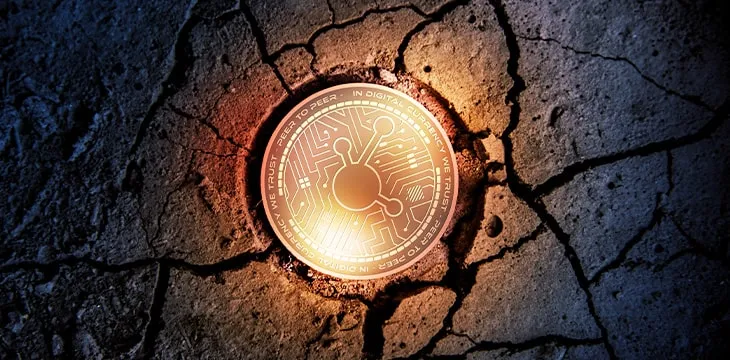|
Getting your Trinity Audio player ready...
|
Some investors in Bitconnect’s fraudulent scheme have received assistance following a federal district court’s decision to order the payment of $17 million to the affected individuals.
Out of the thousands of investors affected by the fraud, only 800 individuals drawn from over 40 countries would share the proceeds of the $17 million restitution. Although the amount in question is insignificant, it signals a step in the right direction for law enforcement looking to offer some form of respite to victims.
Bitconnect roped in victims with the promise of impressive returns on investments through its shady “proprietary technology” that takes advantage of the volatility of digital assets to make tidy profits. However, court filings indicate that the project’s founders diverted the funds and began operating a “textbook Ponzi scheme.”
“In truth, however, BitConnect operated a textbook Ponzi scheme by paying earlier BitConnect investors with money from later investors. Arcaro and his co-conspirators ensured that up to 15% of the money invested into BitConnect went directly into a slush fund to be used for the benefit of its owner and promoters,” a statement from the Department of Justice (DOJ) read.
The process of offering restitution to victims has been underway since the arrest of principal members of the scheme. In 2021, Glen Arcaro, a top promoter of the firm, pleaded guilty to wire fraud charges, while Satish Kumbhani was charged over his role in the large-scale fraud in 2022.
Bitconnect shut its doors following multiple warnings from regulators back in 2018. In the weeks ahead of the closure, prominent individuals in the industry called out Bitconnect over its suspicious activities, including Ethereum co-founder Vitalik Buterin.
Crypto fraud victims are susceptible to even more fraud
Victims of digital asset fraud have been targeted by scammers posing as law enforcement agents looking to help them recover their funds. According to a statement by Singapore’s national police, the scammers are using a fake website while pretending to be affiliated with the United States DOJ.
The targets are urged to log in with their virtual currency exchange logins and fill out a form under the guise of retrieving funds lost in FTX’s ill–fated collapse. The police described the operation as one big “phishing scam” designed to steal sensitive details of the victims.
American financial regulators have warned residents to be on guard over unsolicited messages offering to help recover lost digital assets. The warnings suggest that the scammers might require users to send digital currencies to their wallets which are often termed “mobilization fees,” to expedite the recovery process.
Follow CoinGeek’s Crypto Crime Cartel series, which delves into the stream of groups—from BitMEX to Binance, Bitcoin.com, Blockstream, ShapeShift, Coinbase, Ripple,
Ethereum, FTX and Tether—who have co-opted the digital asset revolution and turned the industry into a minefield for naïve (and even experienced) players in the market.

 07-15-2025
07-15-2025 





